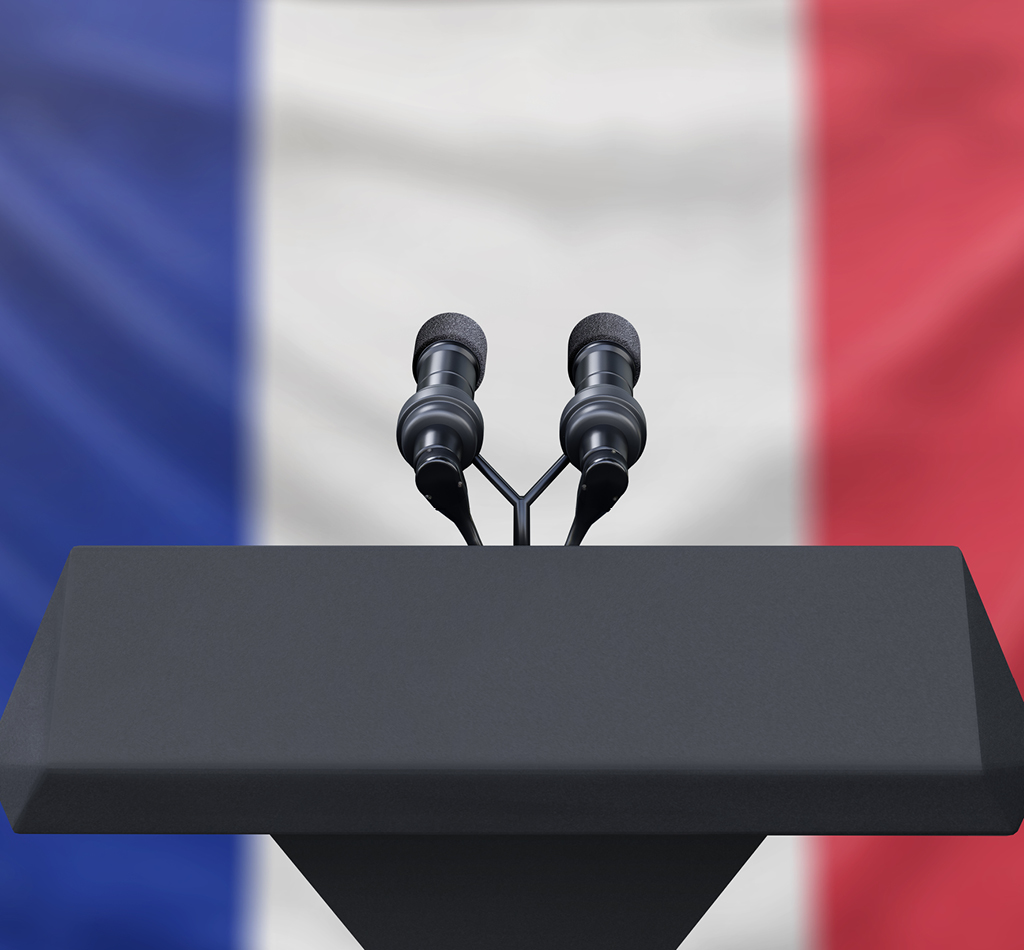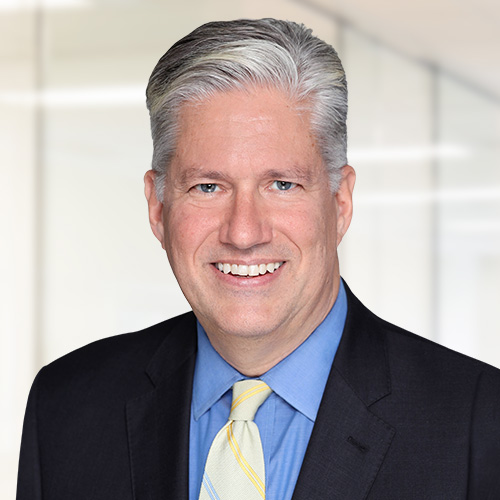Commentary
The Canary in the Coal Mine
February 11, 2021
In the blink of an eye, the month of January is behind us. Despite the fact that most indices have barely moved (MSCI World Index -1.05%, Nasdaq 0.29%, S&P 500 -1.11%, MSCI World Small Cap 2.03%, MSCI EAFE Small Cap -0.42%, and Russell 2000 4.85% – as of January 31, 2021), the year has gotten off to an eventful start. A “David and Goliath” phenomenon is taking shape on social media and it is wreaking havoc on the stock market.
Retail investors are targeting certain stocks, which happen to be the most shorted by top global hedge funds. Spreading their message across social media, these investors have created a ripple effect, which has impacted the fundamental structure of the stock market. Many media outlets are calling this wave “the battle of David and Goliath”.
The Great Short Squeeze?
Like many brick-and-mortar retailers, GameStop (GME) was battling to survive in the ecommerce world. Not surprisingly, given the challenges the business faced, its stock price was steadily falling. Because of poor fundamentals, GME became one of the favourite shorts of many hedge funds, resulting in over 100% of the outstanding shares being sold short. What followed was a textbook example of a short squeeze. A few traders started the trend and it quickly created a snowball effect as retail investors on social media sites (like Reddit) jumped on board.
As more people started to buy GME shares, the short sellers had no choice but to cover their positions, creating further demand and leading to higher prices. This resulted in chaos. According to Reuters, estimated losses from shorting GME have topped over $1 billion. That number skyrockets to $71 billion if we include all the shorts in the United States (US) so far in 2021. And, this is just the tip of the iceberg. An army of over 2.8 million Reddit users, from a group called WallStreetBets, continues the hunt for other highly shorted stocks.
In the beginning of January, three large hedge funds, Melvin, Maplelane and D1, saw their assets drop over 25%. The drop in their NAV may have breached International Swaps and Derivatives Association
This report is provided solely for informational purposes and nothing in this document constitutes an offer or a solicitation of an offer to purchase any security. This report has no regard to the specific investment objectives, financial situation or particular needs of any specific recipient and does not constitute a representation that any investment strategy is suitable or appropriate to a recipient’s individual circumstances. Global Alpha Capital Management Ltd. (Global Alpha) in no case directly or implicitly guarantees the future value of securities mentioned in this document. The opinions expressed herein are based on Global Alpha’s analysis as at the date of this report, and any opinions, projections or estimates may be changed without notice. Global Alpha, its affiliates, directors, officers and employees may sell or hold a position in securities of a company(ies) mentioned herein. The particulars contained herein were obtained from sources, which Global believes to be reliable
(ISDA) triggers, which in turn would lead to mass liquidation by their prime brokers. Melvin got a
$2.75 billion capital injection from Citadel and P72 to meet capital requirements, without which we may have seen an even larger meltdown.
This wave has gone Global
Hitting Wall Street like a tsunami, the ripple effect is being felt around the world. A Goldman Sachs basket of the most heavily shorted stocks has surged over 50% in January – its biggest monthly gain since at least 2008 (index start date).
An online community called Bursabets is the Malaysian version of Reddit. It has over 8,000 members who are targeting shares of glove makers. This sector was the most shorted as Malaysia lifted its short selling ban in 2021. Plus, with vaccine roll outs in the news, yesterday’s COVID pandemic winners are quickly turning to losers.
On Stockal, an Indian trading platform, GME shares are over 15% of trading volume and among the top five most-traded names on the platform. In India, leverage is not allowed while trading foreign stocks, so people are risking their savings hoping to cash in on the trend.
The situation is no different in China, where chat rooms frequented by retail investors are showing similar trends. GME and AMC Entertainment are the most-traded US names on Futu Holdings, a trading platform used by individual investors in China and Hong Kong.
Fundamental Impacts on the market?
Brokers – This increased trading also impacts the basic infrastructure of the financial system. The Depository Trust & Clearing Corporation (DTCC) is a post-trade financial services company providing clearing and settlement services to the financial markets. The DTCC has demanded large sums of collateral raising industry capital requirements to $33.5 billion, an increase of 29% in just one week.
This capital increase impacted all brokers including Robinhood, who has been forced to draw millions on its credit lines, and raise over three billion to meet higher margin requirements. Robinhood had no choice but to comply.
Options market – As a levered instrument, the short-squeeze also impacts the options market. There has been an increase in small trades (less than 10 contracts) in the option market, leading to a bullish feedback loop. As most option sellers trade volatility and hence are short gamma, they are hedging this risk by buying the underlying security when it goes up in price. This creates the bullish feedback loop as dealers buy the underlying stock as a hedge.
This report is provided solely for informational purposes and nothing in this document constitutes an offer or a solicitation of an offer to purchase any security. This report has no regard to the specific investment objectives, financial situation or particular needs of any specific recipient and does not constitute a representation that any investment strategy is suitable or appropriate to a recipient’s individual circumstances. Global Alpha Capital Management Ltd. (Global Alpha) in no case directly or implicitly guarantees the future value of securities mentioned in this document. The opinions expressed herein are based on Global Alpha’s analysis as at the date of this report, and any opinions, projections or estimates may be changed without notice. Global Alpha, its affiliates, directors, officers and employees may sell or hold a position in securities of a company(ies) mentioned herein. The particulars contained herein were obtained from sources, which Global believes to be reliable
Is there a bubble brewing somewhere else?
SPAC-tacular – There is an increase in special-purpose acquisition companies (SPAC), which are shell companies that raise money through initial public offerings (IPO) to acquire a private company, which then merges with the SPAC and becomes public.
To put in perspective, in 2014, SPACs raised $1.8 billion in US IPOs, based on the data from SPAC Research. In 2021, SPAC IPO have already raised $16 billion compared to $4 billion raised across nine traditional IPOs in the first three weeks in 2021. In 2019, SPACs represented 59% of total US IPO capital raising $76 billion in equity proceeds. The movement of billions of dollars in SPAC may highlight people’s real fear of missing out (FOMO), by jumping on the bandwagon.
Over The Counter (OTC) – It should come as no surprise that the lightly regulated OTC market is not immune to day trading effects. As penny stocks are back in vogue, over one trillion shares have changed hands on the OTC market. Many penny stocks have seen trading volume in billions of shares.
Will history repeat itself?
At the moment, euphoria has set in and everyone is having a good time, but not thinking of the consequences of excessive indulgence.
Tech Bubble – The environment today is similar to what investors saw before the tech bubble in 2000. Back then chat rooms were used by day traders as a source of ideas. Unprofitable company stock prices skyrocketed, as fundamentals did not matter. A new breed of amateur day traders poured their life savings into companies they knew very little about. Stock markets became the world’s largest casinos. When the music stopped, many companies went bankrupt and many retail investors lost everything.
The great financial crisis of 2008 – Back then home prices were expected to only appreciate. So individuals started buying houses they could not afford by leveraging themselves with freely available credit. We are seeing a similar phenomenon with the “David and Goliath” effect. Many retail investors think stock prices will continue going up forever. However, over the long run, stock prices are driven by fundamentals not speculation.
Unsurprisingly, many retail investors do not even know what they are buying. For example, an Australian company called GME Resources with the stock ticker GME (same as GameStop) jumped up 60% as its volume increased by 2,000% driven by retail investors who thought they were buying the real GameStop.
This report is provided solely for informational purposes and nothing in this document constitutes an offer or a solicitation of an offer to purchase any security. This report has no regard to the specific investment objectives, financial situation or particular needs of any specific recipient and does not constitute a representation that any investment strategy is suitable or appropriate to a recipient’s individual circumstances. Global Alpha Capital Management Ltd. (Global Alpha) in no case directly or implicitly guarantees the future value of securities mentioned in this document. The opinions expressed herein are based on Global Alpha’s analysis as at the date of this report, and any opinions, projections or estimates may be changed without notice. Global Alpha, its affiliates, directors, officers and employees may sell or hold a position in securities of a company(ies) mentioned herein. The particulars contained herein were obtained from sources, which Global believes to be reliable
Portfolio Impact
While every media channel is overly focused on GameStop, the reality is the market cap is a very small percentage of the total US market capitalization. Could GameStop be the canary in the coal mine?
Many hedge funds are being forced to delever and right size their portfolios. This is leading them to sell higher quality names to cover the shorts, and giving fundamental investors an opportunity to buy quality companies at attractive valuations.
According to Goldman Sachs, there are over 265 SPACS with over $82 billion in equity currently searching for acquisition targets. Combined with leverage this would equate to over $410 billion, or 12% of US merger and acquisition (M&A) volume during the last two years. Corporations and private equity firms are also sitting on trillions of dollars of cash on their balance sheets – an optimal situation for increased M&A activity. Historically, our portfolio has seen a few acquisitions almost every year, and as the M&A market picks up, it is possible that more of our names may get acquired.
Our ability to be highly selective and nimble in our portfolio holdings leaves us well positioned to enter a period of great opportunity for fundamental stock pickers. Our focus on high-quality companies with defensible business models and strong balance sheets should help outperform our small-cap benchmark. As we reflect on the state of markets and the fundamentals of our target companies, we are excited about the current environment and future growth opportunities.







